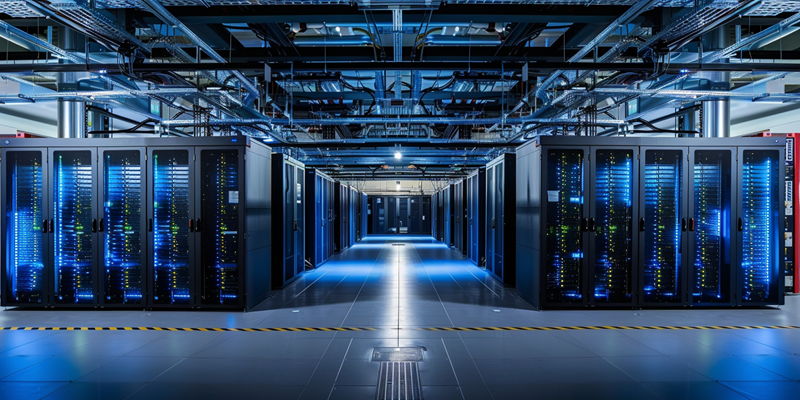As Georgia continues to foster technology growth, Fairburn is set to become the next node in the state’s burgeoning tech network with the new Fairburn Technology Center. Planned to be a sprawling complex with over 1.19 million square feet of space stretched across three buildings on a 59-acre lot, this center marks a significant technological advancement just outside Atlanta. Spearheaded by Bohannon Development Corporation, the details of the primary organization behind the development remain shrouded in a veil of mystery despite legal paperwork filed by Troutman Pepper Strategies. As it stands, the land designated for this ambitious project is zoned for agricultural use, necessitating a shift to industrial zoning to transform the vision into reality by the anticipated 2028 completion date.
Atlanta, already a vibrant locus of data center activities and home to industry giants like Microsoft and QTS, is witnessing an uptick in tech infrastructure investment. The governor of Georgia recently made a decisive move by vetoing a bill that would freeze tax incentives for data centers, preserving the state’s competitive edge as a technology haven. By extending the sales tax exemption for data centers that meet certain investment and job creation criteria until 2033, Georgia safeguards its status as an attractive destination for tech industry expansion.
The Heart of High-Tech
A Tax-Friendly Tech Landscape
In the heart of Georgia, tax legislation is proving to be a magnetic force pulling in high-tech developments. By vetoing an attempt to discontinue sales tax exemptions for data centers, the governor has underscored Georgia’s commitment to nurturing the technology sector. These exemptions accentuate the state’s appeal, attracting enterprises eager to establish or expand their data center operations. With the policy now extended well into the next decade, Georgia positions itself as a hub for long-term investment, promising stability and growth for upcoming tech ventures.
Sowing Seeds of Growth
The planned Fairburn Technology Center is a testament to this growth-oriented mindset. Set to occupy a vast expanse near Atlanta, this tech campus reflects a broader industry shift towards massive, advanced data centers. Beyond offering mere space, projects like these aim to support the ever-escalating demands for secure, reliable digital infrastructure. As these facilities take root, they exemplify the state’s strategic focus on becoming not just a participant but a leading character in the wider narrative of tech capacity expansion across the United States.
Envisioning the Future
The Role of Georgia in Tech Expansion
Georgia’s proactive tax policies, consistent with the state’s overall strategy, demonstrate an acute awareness of the tech sector’s vital role in regional and national economic landscapes. The planned development of the Fairburn Technology Center is more than just a local construction project; it serves as a key puzzle piece fitting into Georgia’s master plan of becoming a prominent tech epicenter. With this expansion, Georgia is not just competing but aiming to set a precedent in the realm of high-tech infrastructure, attracting not only domestic but potentially international stakeholders in the tech industry.
Fairburn Technology Center’s Anticipated Impact
With the planned Fairburn Technology Center, Georgia is actively nurturing its tech sector, positioning Fairburn as a pivotal hub. Set to cover over 1.19 million square feet and sited on 59 acres, the center signifies a technological leap forward on the outskirts of Atlanta. The development is being driven by the enigmatic Bohannon Road Venture LLC, with few details available despite filings by Troutman Pepper Strategies. The land is currently zoned for agricultural use, requiring rezoning to industrial to realize the project by the anticipated 2028 completion date.
Atlanta continues to thrive as a nexus for tech with the presence of giants like Microsoft and QTS and is experiencing a surge in tech infrastructure investment. This momentum is enhanced by the governor’s veto of a bill that would have hindered tax incentives for data centers, affirming Georgia’s status as an innovation-friendly zone. The extension of sales tax exemptions for data centers meeting investment and job creation benchmarks until 2033 ensures Georgia’s appeal as an attractive location for ongoing tech advancements.

